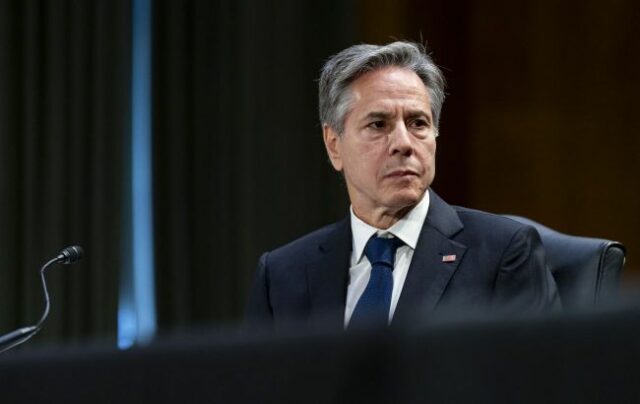Shifting U.S. Stance on Israel Amid Humanitarian Concerns
In light of the ongoing humanitarian crisis in Gaza and the heartbreaking rise in civilian casualties, U.S. Secretary of State Antony Blinken has hinted at a potential overhaul in America’s approach towards Israel. The backdrop of escalating violence, particularly from Israeli operations against Hamas, has prompted this discussion.
Crucial Conversations
Recently, a pivotal phone call between U.S. President Joe Biden and Israeli Prime Minister Benjamin Netanyahu unfolded, highlighting the gravity of the situation. Blinken expressed deep concern over a recent tragedy involving a humanitarian convoy operated by World Central Kitchen, where seven dedicated aid workers tragically lost their lives, including three British citizens. This incident, which Israel attributed to a misidentification of a Hamas militant, has sparked outrage and calls for change.
The Call for Action
During his statements, Blinken underscored that the U.S. is looking for Israel to implement new strategies that prioritize the safety of civilians in Gaza. He made it clear: without tangible action to safeguard innocent lives, we may witness a shift in American support for Israel – a dynamic that could have profound implications.
What It Means for U.S.-Israel Relations
This contemplation of a policy shift signifies a critical moment in U.S.-Israel relations. As pressure mounts internationally, the Biden administration faces a delicate challenge: maintaining its supportive stance towards Israel while simultaneously adhering to its humanitarian commitments. It’s a balancing act that calls for both empathy and strategic diplomacy.
A Broader Perspective: The Human Cost
The human cost of conflict is often staggering. According to recent statistics, thousands of civilians have been affected in Gaza, exacerbating an already dire situation. Each life lost is not just a number; it represents a family shattered and a community mourning. This reality calls for urgent reassessment and decisive action. Studies and reports from various humanitarian organizations emphasize the importance of prioritizing civilian protection during military operations, illustrating that conflict resolution must transcend mere military strategy.
Unique Insights for the Future
So, what can be learned from this situation? Here are a few takeaways to ponder:
- Humanitarian Aid is Essential: Aid organizations play a crucial role in crisis zones. Supporting their work can make a significant difference in the lives of those affected.
- Effective Communication is Key: Open dialogue between nations can pave the way for more effective problem-solving and a deeper understanding of on-the-ground realities.
- Public Awareness Matters: Advocating for humanitarian issues can influence government decisions and promote change.
In conclusion, as the situation evolves, we are reminded that the complexities of war require not only strategic thoughtful leadership but also a profound sense of humanity. While the road ahead may be fraught with challenges, fostering dialogue and prioritizing human welfare can lead to a brighter future for all involved.





